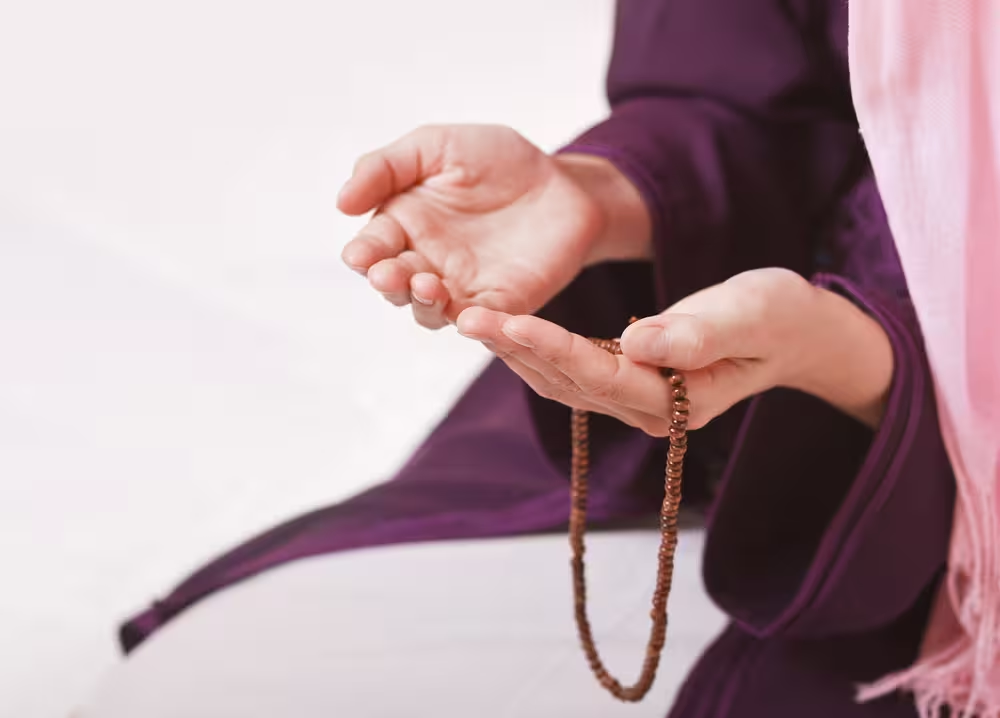
Sunnah Rawatib are voluntary prayers that the Prophet ﷺ regularly performed alongside the five obligatory prayers — either before or after them. The word “Rawatib” comes from the Arabic root “رَتَبَ,” meaning “to be regular or consistent.” These prayers are an essential way to strengthen one’s connection with Allah and gain additional rewards.
Types of Sunnah Rawatib
Sunnah Rawatib are divided into two categories:
1. Confirmed Sunnah (Rawatib Mu’akkadah)
These are twelve rak‘ahs that the Prophet ﷺ never abandoned. Performing them earns immense reward. He ﷺ said:
مَن صلَّى في يومٍ وليلةٍ ثِنْتَيْ عَشْرةَ ركعةٍ، بَنَي له بيتٌ في الجنَّةِ: أرْبَعًا قبلَ الظُّهرِ، وركعتيْنِ بعدَها، وركعتيْنِ بعدَ المغرِبِ، وركعتَيْنِ بعدَ العِشاءِ، وركعتيْنِ قبلَ الفَجرِ – صلاةِ الغَداةِ
“Whoever prays twelve rak‘ahs during the day and night, a house will be built for him in Paradise: four before Dhuhr, two after it, two after Maghrib, two after ‘Isha’, and two before Fajr.”
(Narrated by al-Tirmidhi, Hadith 415 – Hasan Sahih)
2. Recommended Sunnah (Rawatib Mustahabbah)
These are voluntary but not as emphasized as the confirmed Sunnah. They include:
- Four rak‘ahs before ‘Asr
- Two rak‘ahs before Maghrib
- Two rak‘ahs before ‘Isha
Most Important Sunnah Rawatib
The two rak‘ahs before Fajr are considered the most emphasized of all Sunnah Rawatib. ‘Aisha رضي الله عنها reported:
لَمْ يَكُنِ النبيُّ -صَلَّى اللهُ عليه وسلَّمَ- علَى شيءٍ مِنَ النَّوَافِلِ أشَدَّ منه تَعَاهُدًا علَى رَكْعَتَيِ الفَجْرِ
“The Prophet ﷺ was never more regular in performing any supererogatory prayers than the two rak‘ahs before Fajr.”
(Sahih al-Bukhari, Hadith 1169)
It is recommended to recite Surah Al-Kafirun in the first rak‘ah and Surah Al-Ikhlas in the second, as reported by Abu Hurairah رضي الله عنه:
أنَّ رَسولَ اللهِ -صَلَّى اللَّهُ عليه وسلَّمَ- قَرَأَ في رَكْعَتَيِ الفَجْرِ (قُلْ يَا أَيُّهَا الْكَافِرُونَ)، وَ(قُلْ هُوَ اللَّهُ أَحَدٌ)
“The Messenger of Allah ﷺ used to recite ‘Say: O disbelievers’ in the first rak‘ah and ‘Say: He is Allah, the One’ in the second of the two rak‘ahs before Fajr.”
(Sahih Muslim, Hadith 726)
Virtues of Sunnah Rawatib
1. Following the Example of the Prophet ﷺ
Praying Sunnah Rawatib is a direct way to imitate the Prophet ﷺ. ‘Aisha رضي الله عنها said:
أنَّ النبيَّ -صَلَّى اللهُ عليه وسلَّمَ- كانَ لا يَدَعُ أرْبَعًا قَبْلَ الظُّهْرِ، ورَكْعَتَيْنِ قَبْلَ الغَدَاةِ
“The Prophet ﷺ never abandoned four rak‘ahs before Dhuhr and two before Fajr.”
(Sahih al-Bukhari, Hadith 1182)
2. Gaining Allah’s Love
These prayers are a means to attain Allah’s love. The Prophet ﷺ narrated that Allah said:
… وما تَقَرَّبَ إلَيَّ عَبْدِي بشَيءٍ أحَبَّ إلَيَّ ممَّا افْتَرَضْتُ عليه، وما يَزالُ عَبْدِي يَتَقَرَّبُ إلَيَّ بالنَّوافِلِ حتَّى أُحِبَّهُ …
“…My servant draws near to Me with nothing more beloved to Me than what I have made obligatory upon him. Then he continues to draw near to Me with supererogatory acts until I love him…”
(Sahih al-Bukhari, Hadith 6502)
3. Completing Deficiencies in Obligatory Prayers
On the Day of Judgment, voluntary prayers will make up for any shortcomings in obligatory prayers. The Prophet ﷺ said:
إنَّ أولَ ما يُحاسَبُ به العبدُ يومَ القيامةِ من عملِه صلاتُه … فإن انْتَقَص من فريضتِه شيئًا … قال الربُّ: انْظُروا هل لعَبْدِي من تَطَوُّعٍ، فيُكَمِّلُ بها ما انتَقَص من الفريضةِ …
“The first deed for which a person will be called to account on the Day of Judgment will be his prayer… If anything is lacking, Allah will say: ‘See if My slave has any voluntary prayers to complete what is deficient.’”
(Sunan al-Tirmidhi, Hadith 413 – Hasan Gharib)
4. Building a House in Jannah
As mentioned earlier, praying twelve rak‘ahs daily results in a house being built in Paradise.
5. Protection from Hellfire
The Prophet ﷺ said:
مَن حافَظَ على أربَعِ ركعاتٍ قَبلَ الظهرِ وأربعٍ بعدَها حرَّمَه اللهُ على النَّارِ
“Whoever consistently prays four rak‘ahs before Dhuhr and four after it, Allah will forbid Hellfire for him.”
(Sunan Abi Dawud, Hadith 1269 – Sahih)
Take Your Salah to the Next Level
If you found this guide helpful and want to strengthen your prayer life, why not take it a step further? Our one-on-one online Quran classes can help you deepen your understanding of salah, sunnah, and Qur’an — from the comfort of your home.
FAQs
How many Sunnah Rawatib are there daily?
There are twelve confirmed Sunnah Rawatib rak‘ahs: four before Dhuhr, two after Dhuhr, two after Maghrib, two after ‘Isha, and two before Fajr.
Can Sunnah Rawatib be prayed after the time passes?
Yes, if you miss them due to a valid excuse, you can make them up. The Prophet ﷺ made up his missed Sunnah prayers.
What is the most emphasized Sunnah Rawatib?
The two rak‘ahs before Fajr are the most emphasized Sunnah prayer.
Do Sunnah Rawatib count if prayed at home?
Yes, and in fact, it is recommended to pray them at home for greater reward.
